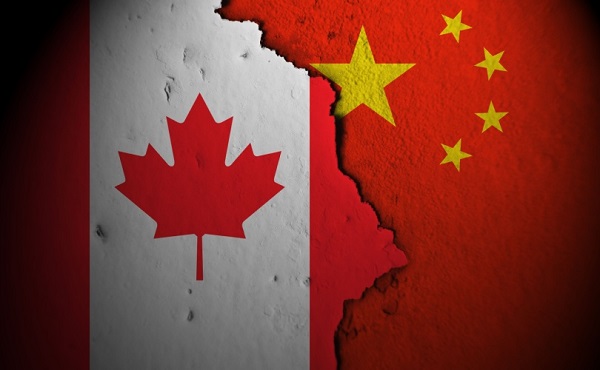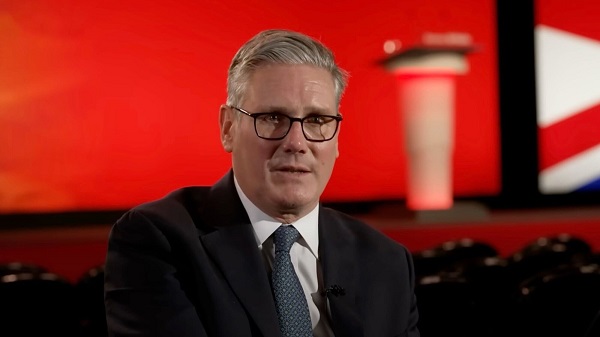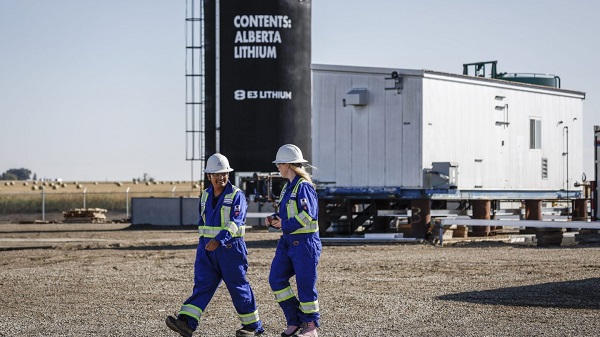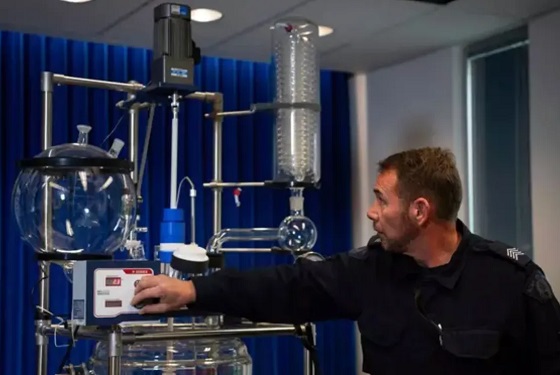Business
The CBC is an unaccountable expensive BLOB

By Franco Terrazzano and Kris Sims
Remember the classic sci-fi movie The Blob, and how the blob keeps getting bigger and bigger while oozing over everything, heedless of the screams around it?
That’s what’s happening at the Canadian Broadcasting Corporation.
In 2023, CBC said it was issuing lay-offs and cutting costs.
“CBC/Radio-Canada… will reduce its English and French programming budgets for the next fiscal year and cut about $40 million,” CBC wrote about itself in December 2023.
But its taxpayer costs went up anyway.
The CBC cost taxpayers $1.3 billion in 2022-23.
The CBC cost taxpayers $1.4 billion in 2023-24.
Despite claims it’s shrinking, CBC’s blob is getting bigger.
Documents obtained by the Canadian Taxpayers Federation show the CBC handed out huge pay raises while doing away with bonuses.
Its layers of management have also swollen to monstrous proportions.
The CBC caught heat for handing out bonuses last year. It paid $18.4 million in bonuses, including $3.3 million to 45 executives for 2023-24.
Former CBC CEO Catherine Tait was grilled about the bonuses at committee and on the CBC’s own news program.
The CBC fan group, Friends of Canadian Media, said the bonuses were “deeply out of touch and unbefitting of our national public broadcaster.”
The CBC caved, and did away with the bonuses, earning praising headlines.
Not so fast.
After cancelling bonuses, CBC handed-out record high pay raises of $38 million in 2024-25.
The raises went to 6,295 employees for an average raise of about $6,000 each. No employees received a pay cut, according to records.
These raises are much higher than raises in previous years, as the CBC spent $11.5 million on raises in 2023-24.
The CBC blob is also growing bigger in size.
Currently, 1,831 CBC employees take a six-figure salary, costing taxpayers about $240 million, for an average salary of $131,060 for those employees.
In 2015, 438 CBC employees took home six-figure salaries, costing taxpayers about $60 million.
That’s a 318 per cent increase since 2015.
CBC quadrupling the size of its top payroll blob is scary enough for taxpayers, but the roles these employees play will also raise eyebrows.
There’s a journalist anecdote that says for every reporter working in a regular newsroom, there are about a dozen CBC managers.
Documents obtained by the CTF show that narrative checks out.
The CTF asked the CBC for a list of employees paid more than $100,000 per year.
The list is 65 pages long, depicting offices full of managers and support staff.
CBC has more than 250 directors, 450 managers and 780 producers that are paid more than $100,000 per year.
The CBC also employed 130 advisors, 81 analysts, 120 hosts, 80 project leads, 30 lead architects, 25 supervisors, among other positions, that were paid more than $100,000 last year, according to the access-to-information records. The CBC redacted the roles for more than 200 employees.
Let’s tally the CBC blob’s body count so far.
The state broadcaster is costing taxpayers more than $1.4 billion this year. Its new CEO, Marie-Philippe Bouchard, is paid at the same level as Tait, at about $500,00 per year.
CBC said it would cancel its bonuses, then it jacked up salaries.
The CBC swelled its ranks of highly paid employees by 318 per cent since 2015.
The CBC is blacking out data on documents and refusing to tell Canadians how much it’s spending on advertising.
Plot twist finale: next to nobody is watching the CBC.
CBC News Network’s share of prime-time is 1.8%, meaning 98 per cent of TV-viewing Canadians choose to not watch it.
No CBC entertainment show cracked the top 10 in the latest Canadian ratings.
The Murdoch Mysteries, which isn’t produced by the CBC, has the CBC’s biggest audience with about 734,000 viewers, about 1.7 per cent of the population.
In the movie, The Blob was stopped by freezing it and dropping it in the arctic.
The CBC blob can be stopped from eating taxpayers’ wallets by defunding it.
Business
Inquiry discloses Canada providing a reported $2.5 million in aid to Chinese universities

From LifeSiteNews
The Department of Foreign Affairs refused to say how much money went to schools in China after Conservative MP Lianne Root asked for a dollar amount.
Canadian taxpayers are out millions of dollars that went to aid universities in Communist China, records show.
An Inquiry of Ministry, which was brought forth in the House of Commons at the request of Conservative MP Lianne Rood, shows that the Department of Foreign Affairs refused to say how much money was given to schools in China.
“The department concluded that producing and validating a comprehensive response to this question would require a collection of information that is not possible in the time allotted and could lead to disclosure of incomplete and misleading information,” the department said.
As noted by Blacklock’s Reporter, over the past five years, $2.5 billion was allocated in foreign aid to schools outside of Canada, with educational grants totaling $1,116,507, including $806,257 for postsecondary campuses, primarily directed to China.
“The department undertook an extensive preliminary search to determine the amount of information that would fall within the scope of the question and prepare a comprehensive response,” the department wrote in an Inquiry of Ministry tabled in the House of Commons.
Rood, not happy with the information from the report, asked at a recent meeting, “About Canadian funding for education in developing countries, how much was spent?”
Opposition House leader Andrew Scheer told reporters he is of the view that no money should be going to fund schools in “Communist” China.
“I don’t believe Canadian taxpayers should be sending any money to China,” he said.
“We’re talking about a Communist dictatorial government that abuses human rights, quashes freedoms, violates the rights of its citizens, and has a very aggressive foreign policy throughout the region.”
Scheer called upon the Liberal government of Prime Minister Mark Carney to “stand up for itself, stand up for Canadians, stop being bullied and pushed around on the world stage, especially by China.”
During a 2025 federal election campaign debate, Conservative Party leader Pierre Poilievre called out Carney for his ties to Communist China.
As reported by LifeSiteNews, the Foreign Interference Commission concluded that operatives from China may have had a hand in helping to elect a handful of MPs in both the 2019 and 2021 Canadian federal elections. It also determined that China was the primary foreign interference threat to Canada.
As reported by LifeSiteNews, a new exposé by investigative journalist Sam Cooper has claimed there is compelling evidence that Carney and former Prime Minister Justin Trudeau are strongly influenced by an “elite network” of foreign actors, including those with ties to China and the World Economic Forum.
Business
UK Government Dismisses Public Outcry, Pushes Ahead with Controversial Digital ID Plan

Over 2.7 million signatures couldn’t move the needle on a dystopian plan already set in motion.
|
A UK government plan to introduce a nationwide digital identification system is moving ahead, despite a public backlash that saw more than 2.7 million people sign a petition urging its cancellation.
The proposal, first announced by Labour in September, would provide a digital ID to every UK citizen and legal resident aged 16 and above.
Prime Minister Keir Starmer claimed the new system would help strengthen border enforcement and reduce illegal employment, describing the ID, dubbed the “Brit Card,” as a tool to “make it tougher to work illegally in this country, making our borders more secure.”
The public response was overwhelmingly opposed. Warnings about centralized data collection, privacy intrusions, and increased state surveillance flooded public discourse.
Descriptions of the proposal ranged from a “dystopian nightmare” to fears of a gateway to “digital control.”
Not long after Labour’s announcement, a petition was created on the official UK Government and Petitions website.
|
 |
|
It quickly gathered enough signatures to qualify for parliamentary debate, a 100,000-signature benchmark, and within days surged past two million.
Despite reaching over 2.7 million signatures, the government issued a formal response rejecting the petition and restating its commitment to the scheme.
According to the response, published by the Department for Science, Innovation and Technology, the new ID system is part of Labour’s wider aim to modernize public services.
“We will introduce a digital ID within this Parliament to help tackle illegal migration, make accessing government services easier, and enable wider efficiencies. We will consult on details soon,” the government wrote.
Although a formal consultation process is expected in the coming weeks, involving employers, unions, and civil society organizations, the government made it clear that legislation to support the digital ID system is on the way.
Over time, it is expected to serve as a single access point for government services like benefits, tax records, and other official interactions, potentially eliminating the need for physical documents or multiple logins.
The government’s decision to push ahead with a national digital ID comes in the shadow of the recently enacted Online Safety Act, which has already laid the groundwork for sweeping identity checks across the internet.
That law, marketed as a way to protect children from harmful content, gave regulators broad authority to demand age verification for accessing a wide range of online services.
The result is an emerging digital framework where proving who you are, even just to browse or communicate, is becoming a condition of access.
|
-

 Alberta2 days ago
Alberta2 days agoAlberta’s E3 Lithium delivers first battery-grade lithium carbonate
-

 Automotive2 days ago
Automotive2 days agoCanada’s EV subsidies are wracking up billions in losses for taxpayers, and not just in the auto industry
-

 Business2 days ago
Business2 days agoLA skyscrapers for homeless could cost federal taxpayers over $1 billion
-

 Crime1 day ago
Crime1 day agoThe “Strong Borders Act,” Misses the Mark — Only Deep Legal Reforms Will Confront Canada’s Fentanyl Networks
-

 Business1 day ago
Business1 day agoUK Government Dismisses Public Outcry, Pushes Ahead with Controversial Digital ID Plan
-

 Agriculture20 hours ago
Agriculture20 hours ago“We Made it”: Healthy Ostriches Still Alive in Canada
-

 Energy2 days ago
Energy2 days agoNuclear power outperforms renewables every time
-

 Artificial Intelligence2 days ago
Artificial Intelligence2 days agoAI chatbots a child safety risk, parental groups report





